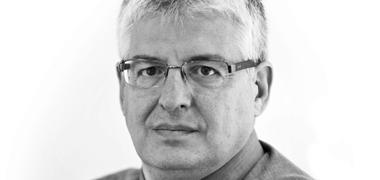We are celebrating the 10-year anniversary of Debats d’Educació by giving the educational community the opportunity to air its views

I am a teacher, social educator and pedagogue. I work at the Christian Schools Foundation of Catalonia.
The three things I’ve learned
Education will continue to require increasing resources and public and private finance must be mobilised simultaneously
A knowledge society must devote more resources to all spheres, types and levels of education going beyond school or what might strictly be called education systems.
This mobilisation of resources requires public and private participation.
Public resources must be directed towards ensuring equality of opportunity and educational fairness. The universal provision of free education services can perhaps continue to grow, but not indefinitely and indiscriminately. Their scope must be correctly established.
The public or private origin of educational finance need not be translated into the way the service is provided (public, private or mixed). The provision of public finance need not be linked to the direct provision of more services by public administrations. Other routes that are currently disdained, such as grants and tax incentives for offering and using education services, must be promoted.
There will be a need to be bolder with priorities and to invest much more in the initial stages of education
In terms of the education system, investment in the early stages of education is most socially and economically cost-effective. When it comes to distributing public resources – and particularly when they are very limited – priorities must always be fine tuned.
The 0-3 age group for children who have no guaranteed family care and, generally, the 3 to 12 age group, should be prioritised. More and better teachers, more teacher training and more resources. To a degree the current system needs turning on its head.
The finance of schools will take into account differential aspects, depending on their specific nature
School finance at levels of education declared to be universal and free shows two dysfunctions that must be overcome.
Private schools forming part of the public system do not receive a minimum level finance that is sufficient to ensure that they are really free at these levels, nor is this finance analogous to that received by public schools. This situation forces these schools to systematically appeal to families for financial support, with the resulting distortions generated by this mechanism.
The mechanisms for allocating resources are too uniform and almost exclusively consider one quantitative variable: the number of pupils or units. This is the case for public schools and, still more radically, for private schools forming part of the public system. The complexity of the education service requires resource allocation methods that evaluate other factors related to the real educational needs each school must meet.














 The texts published on this website are, unless otherwise indicated, covered by the Creative Commons Spain Attribution 3.0 licence. You may copy, distribute, transmit and adapt the work, provided you attribute it (authorship, journal name, publisher) in the manner specified by the author(s) or licensor(s). The full text of the licence can be consulted here:
The texts published on this website are, unless otherwise indicated, covered by the Creative Commons Spain Attribution 3.0 licence. You may copy, distribute, transmit and adapt the work, provided you attribute it (authorship, journal name, publisher) in the manner specified by the author(s) or licensor(s). The full text of the licence can be consulted here: